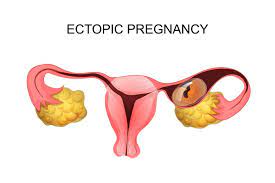Ectopic Pregnancy
Best care for Ectopic Pregnancy
Understanding Ectopic Pregnancy
An ectopic pregnancy occurs when a fertilized egg implants outside the uterus, most commonly in one of the fallopian tubes, a condition also known as "ectopic gestation." This occurs in about 3% of pregnancies and can be life-threatening for the mother, as such pregnancies cannot continue safely.
The embryo may implant in the fallopian tube, ovary, a previous cesarean or myomectomy scar in the uterus, or the cervix.
Symptoms of Ectopic Pregnancy
Symptoms of an ectopic pregnancy may include:
- Abdominal pain or cramping
- Nausea or vomiting
- Light vaginal bleeding
- Lower back pain
- Pelvic pressure or pain
- Fainting
Risk Factors for Ectopic Pregnancy
Several factors increase the risk of an ectopic pregnancy, including:
- Endometriosis
- Sexually transmitted infections (STIs) causing pelvic inflammatory disease (PID)
- Use of intrauterine devices (IUDs) like Multiload or Copper T
- History of infertility
- Smoking
Causes of Ectopic Pregnancy
An ectopic pregnancy can be caused by:
- 1. Damaged or blocked fallopian tubes
- Pelvic inflammatory disease (PID)
- Use of intrauterine devices (IUDs)
- Conditions that cause scarring in the fallopian tubes
Diagnosing Ectopic Pregnancy
A doctor diagnoses an ectopic pregnancy through a pelvic exam and ultrasound. Blood tests measuring HCG levels also aid in diagnosis. If you have concerns about your pregnancy, it is crucial to consult a doctor promptly.
Treatment Options for Ectopic Pregnancy
Treatment depends on the stage at which the ectopic pregnancy is diagnosed. Early-stage diagnoses can often be managed with medication, while later stages may require surgery.

Common treatments include:
- Methotrexate: This injection stops the growth of the cells in the fallopian tube.
- Laparoscopic Surgery: A minimally invasive procedure to remove the fallopian tube containing the ectopic pregnancy. The tube can sometimes be saved if it is not damaged or bleeding.
- Open Surgery: Rarely required today, but necessary if the tube has ruptured and the patient is experiencing severe complications.
Preventing Ectopic Pregnancy
While not always preventable, certain steps can reduce the risk of an ectopic pregnancy:
- Early Medical Consultation: Visit a gynecologist early when you miss your period and have a positive pregnancy test.
- Early Ultrasound: Get an early ultrasound if there are symptoms of pain, spotting, or if HCG levels are not doubling as expected.
- Prenatal Vitamins: Take prenatal vitamins containing folate (folic acid).
- Regular Check-ups: Have regular gynecological examinations, especially if you use an IUD. Visit your doctor urgently if you miss periods with an IUD in place.
- Consistent Birth Control: Use 21-day birth control pills regularly and avoid emergency contraception after unprotected sex.
- Avoid Smoking: Quit smoking to reduce your risk.
- Barrier Contraception: Use barrier contraception (male and female condoms) to prevent STIs and undergo regular STI screening and treatments to prevent PID.
By following these steps and maintaining regular medical consultations, the risk and impact of ectopic pregnancy can be significantly reduced.


